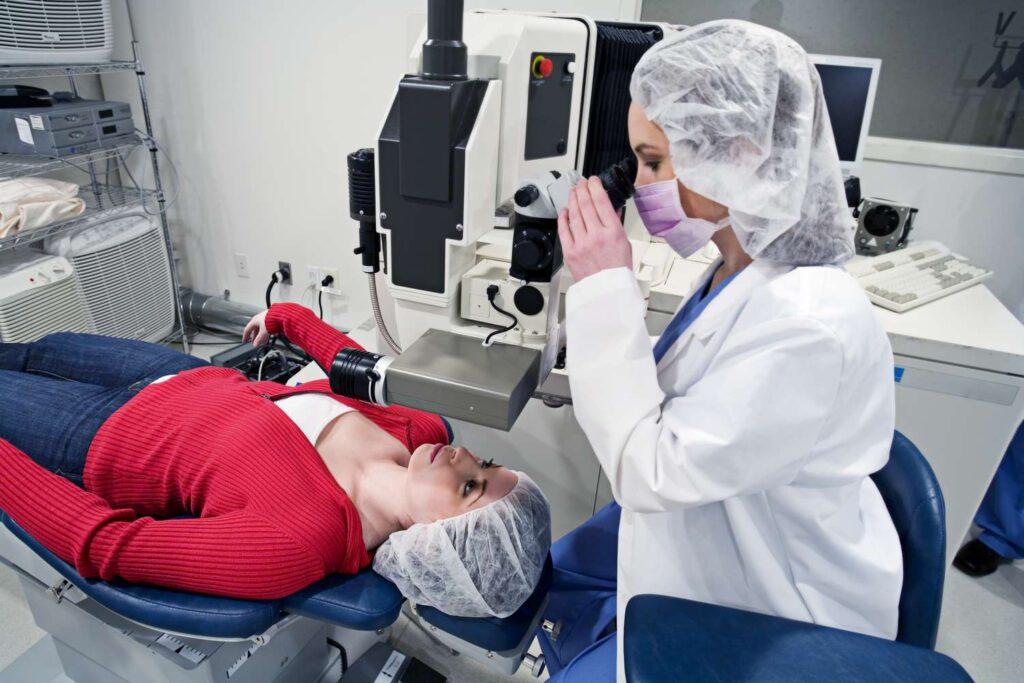In recent years, LASIK eye surgery has emerged as a popular solution for those seeking to correct vision problems. With its promise of clear sight without the need for glasses or contact lenses, many individuals are left wondering whether this procedure is the right choice for them. While LASIK can offer significant benefits, it is not suitable for everyone. Here are five critical factors to consider before making a decision.
1. Understanding Your Vision Needs
Assessing Your Current Vision
Before considering LASIK, it is essential to have a thorough understanding of your current vision needs. Are you nearsighted, farsighted, or suffering from astigmatism? Each of these conditions may respond differently to LASIK treatment. A comprehensive eye examination by a qualified ophthalmologist will provide insights into your specific vision problems and whether LASIK can effectively address them. Additionally, it is important to discuss any family history of eye conditions, as hereditary factors can influence the effectiveness of the procedure and your overall eye health.
Deciding whether eye surgery LASIK is right for you is a multifaceted process that requires careful consideration of various factors. By assessing your vision needs, age, eye health, financial situation, and the qualifications of your surgeon, you can make an informed decision that aligns with your lifestyle and expectations. Ultimately, the goal is to achieve clearer vision and improve your quality of life, so take the time to weigh your options thoughtfully.

Daily Activities and Lifestyle
Your daily activities and lifestyle play a significant role in determining whether LASIK is suitable for you. For individuals who lead active lifestyles or participate in sports, the freedom from glasses or contacts can be a game changer. The ability to wake up and see clearly without the hassle of fumbling for eyewear can enhance performance in various physical activities, from swimming to running. However, those who work in environments with high exposure to dust or chemicals may need to consider the potential risks associated with the procedure. It is equally vital to evaluate how often you engage in activities that require precise vision, such as reading or using a computer, as these factors can also impact your decision. Furthermore, understanding the long-term commitment to eye care post-surgery, including regular check-ups and potential lifestyle adjustments, is crucial for maintaining optimal vision health.
Read about laser eye surgery at: 5 Must-Know Facts Before Booking Laser Eye Surgery
2. Age and Eye Health
The Importance of Age
Age is a crucial factor when considering LASIK. Most practitioners recommend that candidates be at least 18 years old, as vision can continue to change during adolescence. Additionally, individuals over 40 may experience presbyopia, a condition that affects near vision, which LASIK does not correct. Understanding your age-related vision changes is vital in assessing the appropriateness of the procedure. As we age, the lens of the eye becomes less flexible, making it increasingly difficult to focus on close objects. This natural progression can lead to reliance on reading glasses or bifocals, which LASIK cannot address. Therefore, it is essential for potential candidates to have realistic expectations about what the surgery can achieve based on their age.

Overall Eye Health
Good eye health is paramount for successful LASIK surgery. Conditions such as dry eye syndrome, glaucoma, or cataracts can complicate the procedure and its outcomes. A thorough evaluation by an eye care professional will help determine if any underlying health issues may affect your candidacy for LASIK. Furthermore, it is important to note that certain systemic conditions, such as diabetes, can also influence eye health and healing processes post-surgery. Individuals with diabetes may experience fluctuations in their vision due to changes in blood sugar levels, which can complicate the LASIK procedure. Therefore, maintaining a comprehensive dialogue with your eye care provider about your overall health, lifestyle, and any medications you may be taking is crucial to ensure a safe and effective LASIK experience. Regular eye examinations and proactive management of any pre-existing conditions can significantly enhance the likelihood of a successful outcome. Read more about blood sugar levels at https://medlineplus.gov/bloodglucose.html
3. Realistic Expectations
Understanding the Limitations
While LASIK can significantly improve vision, it is essential to have realistic expectations about the results. Many patients achieve 20/25 vision or better, but not everyone will achieve perfect eyesight. Understanding the limitations of the procedure will help you set realistic goals and avoid disappointment. It is also worth noting that individual factors such as age, the severity of refractive error, and overall eye health can influence the outcome. For instance, younger patients may experience more stable results compared to older individuals whose vision may continue to change due to presbyopia or other age-related conditions.
Moreover, it is important to consider that LASIK is not a guarantee against future vision changes. Some patients may still require glasses or contact lenses for certain activities, particularly as they age. Therefore, having a thorough discussion with your eye care professional about your specific vision needs and lifestyle can provide clarity on what you can realistically expect from the procedure.
Potential Risks and Side Effects
Like any surgical procedure, LASIK carries potential risks and side effects. These can include dry eyes, glare, halos around lights, and in rare cases, vision loss. Being aware of these risks and discussing them with your surgeon can help you make an informed decision about whether LASIK is right for you. It is also beneficial to understand that while many side effects are temporary and resolve within a few weeks, some individuals may experience long-term changes in their vision or discomfort.
Additionally, the recovery process can vary significantly from one patient to another. Some may experience immediate improvements in their vision, while others might take longer to notice the full benefits. Regular follow-up appointments are crucial, as they allow your surgeon to monitor your healing progress and address any concerns that may arise. Engaging in open communication with your healthcare provider will ensure that you are well-informed throughout your LASIK journey, enabling you to navigate the process with confidence and clarity.
4. Financial Considerations
Cost of the Procedure
The cost of LASIK surgery can vary significantly based on various factors, including the technology used, the surgeon’s experience, and the geographical location of the clinic. In Australia, the average cost ranges from $2,000 to $3,500 per eye. It is essential to consider whether this investment aligns with your financial situation and vision needs. Additionally, it is worth noting that the price may also fluctuate depending on the specific type of LASIK procedure chosen, such as traditional LASIK versus more advanced techniques like femtosecond LASIK, which may offer quicker recovery times and enhanced precision. As such, prospective patients should thoroughly research the options available and consult with their chosen clinic to understand the implications of each type of surgery on both cost and outcomes.
Insurance and Financing Options
Most health insurance plans do not cover LASIK surgery, as it is often considered an elective procedure. However, many clinics offer financing options or payment plans that can make the procedure more accessible. Exploring these options can help you determine if LASIK is a feasible choice for your budget. Furthermore, some clinics may provide promotional offers or discounts for certain payment methods, such as cash payments or financing through third-party lenders. It is also advisable to inquire about any potential hidden costs that may arise during the pre-operative assessments or post-operative care, as these can add to the overall expense. Understanding the full financial commitment involved can help ensure that you are fully prepared for the journey ahead.
5. Finding the Right Surgeon
Researching Qualifications and Experience
The success of LASIK largely depends on the skill and experience of the surgeon performing the procedure. It is crucial to research potential surgeons thoroughly. Look for board certification, specialised training in LASIK, and a track record of successful surgeries. Reading patient reviews and testimonials can also provide valuable insights into a surgeon’s reputation. Additionally, it is wise to inquire about the number of procedures the surgeon has performed, as well as their complication rates. A surgeon who is well-versed in the latest techniques and technologies will not only enhance your chances of a successful outcome but also ensure that you are receiving the most up-to-date care available. Click here to find more about complication.
Consultation and Communication
Scheduling a consultation with a prospective surgeon is an excellent opportunity to ask questions and gauge their communication style. A good surgeon should be willing to discuss the procedure in detail, address any concerns, and help you feel comfortable with your decision. Trust your instincts during this process; a strong rapport with your surgeon can contribute to a positive surgical experience. During the consultation, pay attention to how the surgeon explains the risks and benefits of LASIK. A transparent discussion is essential, as it reflects their commitment to patient care. Furthermore, consider asking about post-operative care and follow-up appointments, as these are crucial aspects of the LASIK journey that can significantly impact your recovery and overall satisfaction with the results.
Conclusion
For those who are suitable candidates, LASIK can be a life-changing procedure. However, it is crucial to approach the decision with a clear understanding of the benefits, limitations, and potential risks involved. Consulting with a qualified eye care professional can provide the guidance needed to navigate this important choice.

